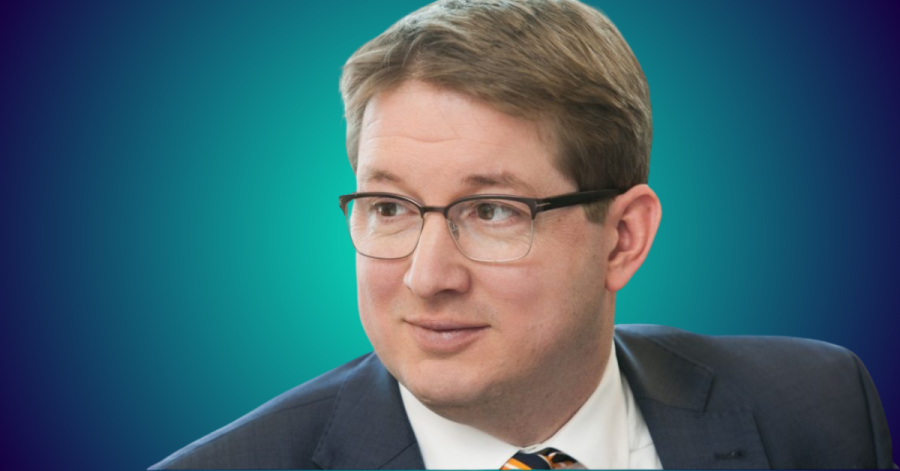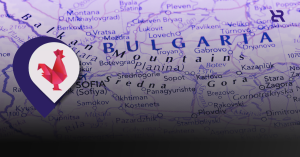When Martin Giese speaks about startups, he rarely uses buzzwords. The longtime coach, investor, and board member based in Munich prefers to talk about craftsmanship. “Building a startup is not rocket science,” Giese says. “It’s not reserved for a chosen few. It’s something you can learn — more like a craft than a science. People have been shaping metal or carving wood for centuries. Startups work the same way: you study, you practice, and you improve.”
Giese has spent the past two decades helping founders turn their startups into viable ventures. He has also observed how startup ecosystems evolve, having watched Munich grow from an emerging scene in the early 2000s into one of Europe’s leading innovation hubs. Their ecosystem encompassess over 2K startups and over 20 VC firms.
Ahead of his visit to Sofia this October at Startup Bulgaria Crossroads 2025, he shared his observations on what makes ecosystems mature, how to think about fundraising, and where founders in smaller markets can find their edge.
The way to connected ecosystem
Giese remembers when Munich’s startup landscape was fragmented and uncertain. Today, it is home to a broad range of venture funds, corporate innovation programs, and university-linked accelerators. For instance, UnternehmerTUM, the startup lab of the Technical University of Munich (TUM), was recognized as Europe’s number 1 startup hub in 2024 and in 2025 by Financial Times.
He attributes this progress not to a single policy or initiative, but to what he calls a “pay-it-forward” culture. Experienced founders and investors began mentoring new teams, taking time for short conversations and informal advice sessions that slowly built collective knowledge.
“I’ve seen Munich go from an emerging ecosystem to a mature one,” he says. “That happened because people started helping each other. You take a coffee with someone who has a question, you share your experience, and over time the network strengthens. Eventually, it comes back in the form of new opportunities.”
For countries in Central and Eastern Europe, he believes similar dynamics can develop. Although smaller markets may lack the density of serial entrepreneurs or angel investors, they can draw on connections to more established hubs.
“You don’t have to reinvent the wheel,” he says. “You can reach out to founders and investors across Europe. The more you exchange ideas and practices, the faster the local ecosystem matures.”
Rethinking fundraising
Fundraising is one of the topics Giese encounters most often in mentoring sessions, and one where misconceptions persist. The biggest, he says, is the idea that venture capital should be a founder’s first option.
“Many people think only of VC, and they think of VC too early,” he says. “The truth is that venture capital usually comes later, once a company has already proven itself. Investors want to see evidence of traction before they take the risk.”
Instead, Giese outlines several funding routes that can precede or complement VC money:
-
- Bootstrapping and revenue funding. Founders can rely on early customer income or service work to finance product development. “Sometimes taking a detour through consulting or project work saves you from giving away too much equity,” he notes.
- Public grants. Regional, national, and EU programs can provide non-dilutive capital, often underused by early founders because of the administrative effort required.
- Friends and family. A traditional but limited source, best approached with caution since those investors may not understand startup risk.
- Crowdfunding. Effective for consumer products with broad appeal and a clear story.
- Business angels. “At the early stage, they are often the most relevant partners,” Giese says. “In Munich, ticket sizes are usually €50,000 to €100,000 — enough to matter but not so large that they complicate governance.”
Why cap tables matter
If there is one technical concept Giese insists founders should master early, it is the cap table. Poorly structured ownership, he warns, can stop an otherwise promising startup from ever raising institutional funding.
“I’ve seen companies fail not because of the product, but because their cap table was uninvestable,” he says. “If founders have given away too much equity early on, later investors see no room for future rounds.”
Problems can arise from generous early deals with co-founders, advisors, or first-round angels. Once shares are issued, it is difficult and expensive to correct mistakes.
“Investors want founders to own a large share because it keeps them motivated,” Giese explains. “If early participants hold disproportionate stakes or if there are too many small shareholders, it becomes almost impossible to fix.”
He compares a good cap table to a membership list: “You want to look at it and feel comfortable with everyone involved.”
Attracting international investors
Bulgaria and other smaller European markets often face questions about how to attract international capital. For Giese, the answer lies in presenting a credible growth story.
“The home market may be large enough for the first customers, but you need a five-year expansion plan,” he says. “Investors want to see how you will reach Europe or the U.S., not just how you will dominate a small region.”
He acknowledges that Europe’s fragmented nature, with multiple languages, regulations, and tax systems, complicates cross-border growth. Still, he argues that founders can use these differences strategically, choosing the next market where their product or network fits best.
Some regions, such as Bavaria, have developed government programs to ease international expansion by providing guidance, co-working space, and introductions to local partners. “These kinds of initiatives can lower the barrier for startups considering a second base,” he says.
Eastern Europe’s strengths
Although Giese has not yet invested in an Eastern European startup, he has worked with founders across Slovenia, Serbia, and other parts of the region through EU programs. He sees a clear pattern: strong technical talent and competitive engineering skills, combined with growing business ambition.
“Eastern Europe has an excellent reputation in software and computer science,” he says. “The next step is building confidence in commercialization and international scaling.”
He believes that over time, successful founders will reinvest in the next generation, creating a self-reinforcing cycle similar to what Munich experienced. “When the first unicorn founders start mentoring and investing, that’s when the ecosystem accelerates,” he says.
Focus on sales
In Sofia, Giese plans to focus his talk on sales, a subject he believes is underappreciated among early-stage founders.
“Sales is where you prove that what you are building matters enough for someone to pay for it,” he says. “It’s a crucial discipline, not an afterthought.”
Drawing on years of experience mentoring founders, he intends to share common mistakes and practical frameworks, leaving time for discussion. “I always learn from local questions,” he adds. For Giese, the evolution of ecosystems like Bulgaria’s mirrors the early days of Munich: full of potential, with strong technical talent and a growing appetite for entrepreneurship.
“The foundation is there,” he says. “The challenge now is to connect people, share experience, and build trust so that the next generation of founders can move faster.”








